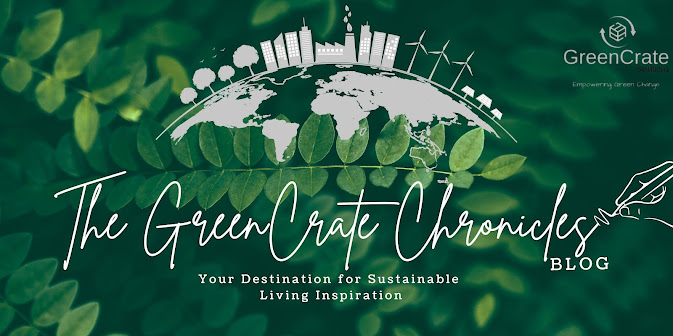SPAR Proteas Netball Team’s Sustainability Journey in 2024
Introduction
The SPAR Proteas netball team has long been a beacon of excellence in South African sports. In 2024, they’ve also become a model of sustainability, demonstrating how sports teams can lead the charge in environmental responsibility. This article explores the team’s significant strides in sustainability throughout the year, highlighting their achievements, ongoing efforts, future plans and strategic partnerships that underscore their commitment to a greener future.
A Year of Green Milestones
Achievements in 2024
The SPAR Proteas have made remarkable progress in their sustainability initiatives in 2024. Key achievements include:
- Carbon Neutral Certification: The team achieved carbon-neutral certification by offsetting their carbon emissions through various projects, including reforestation and renewable energy initiatives.
- Sustainable Apparel: Partnering with eco-friendly brands, the team introduced uniforms made from recycled materials, reducing their environmental footprint.
- Zero-Waste Events: Implementing strict waste management protocols, the Proteas have hosted zero-waste events, significantly reducing the amount of waste sent to landfills.
Ongoing Efforts
The team’s current sustainability efforts are multifaceted, focusing on continuous improvement and community engagement.
Green Training Facilities
The SPAR Proteas have upgraded their training facilities to be more environmentally friendly. This includes:
- Solar Power: Installation of solar panels to power their training centers, reducing reliance on non-renewable energy sources.
- Water Conservation: Implementing rainwater harvesting systems and using recycled water for maintaining grounds and facilities.
- Energy-Efficient Lighting: Switching to LED lighting to reduce energy consumption.
Eco-Friendly Travel
Recognizing the environmental impact of travel, the team has adopted several measures to minimize their carbon footprint:
- Offsetting Air Travel: For necessary flights, the team offsets their carbon emissions through certified carbon offset programs.
- Local Transportation: When feasible, the team uses electric vehicles for local transportation during tours and matches.
Community Engagement
The Proteas have launched numerous initiatives to engage the community in sustainability efforts:
- Educational Programs: Collaborating with schools to educate students on the importance of sustainability and how sports can contribute to a greener future.
- Clean-Up Drives: Organizing regular clean-up drives in local communities, fostering a culture of environmental stewardship.
Future Plans
Looking ahead, the SPAR Proteas have outlined ambitious plans to further enhance their sustainability efforts.
Expansion of Green Initiatives
- Renewable Energy Investments: Expanding the use of renewable energy across all their facilities, aiming for 100% renewable energy use by 2025.
- Plastic-Free Pledge: Committing to eliminating single-use plastics in all their operations by the end of 2024.
Innovation in Sustainability
- Green Technology in Sports: Exploring the use of green technology in sports, such as biodegradable equipment and sustainable sports surfaces.
- Sustainable Nutrition: Working with nutritionists to develop sustainable meal plans that prioritize locally sourced, organic ingredients.
Enhanced Community Programs
- Youth Sustainability Camps: Launching sustainability camps for young athletes, teaching them about environmental responsibility and sustainable practices in sports.
- Partnerships with Local Farmers: Partnering with local farmers to supply organic produce for the team’s meals, supporting local agriculture and reducing carbon emissions from food transportation.
Strategic Partnerships
The SPAR Proteas have formed several key partnerships to bolster their sustainability efforts.
Corporate Partnerships
- SPAR Group: As their primary sponsor, SPAR Group has been instrumental in supporting the team’s sustainability initiatives. This includes funding for renewable energy projects and sustainable apparel.
- Green Energy Companies: Collaborating with companies specializing in renewable energy to install solar panels and other green technologies at their facilities.
NGO Collaborations
- Environmental NGOs: Partnering with environmental NGOs to participate in reforestation projects and other environmental initiatives.
- Sustainability Certifications: Working with organizations that provide sustainability certifications to ensure their practices meet the highest standards.
Community and Educational Institutions
- Local Schools and Universities: Engaging with educational institutions to develop and implement sustainability curricula and projects.
- Community Organizations: Collaborating with community organizations to promote environmental awareness and action at the grassroots level.
Conclusion
The SPAR Proteas netball team’s commitment to sustainability in 2024 has set a new standard for sports teams in South Africa and beyond. Through their comprehensive approach to sustainability, they are not only reducing their environmental impact but also inspiring their fans and the broader community to take action. As they continue to innovate and expand their green initiatives, the Proteas are proving that sports and sustainability can go hand in hand, creating a winning formula for a brighter, greener future.
This article is a testament to the SPAR Proteas’ dedication to sustainability. Their efforts in 2024 demonstrate that with determination and strategic partnerships, sports teams can play a pivotal role in promoting environmental responsibility and inspiring positive change.






.png)
%20(1).png)
Comments
Post a Comment